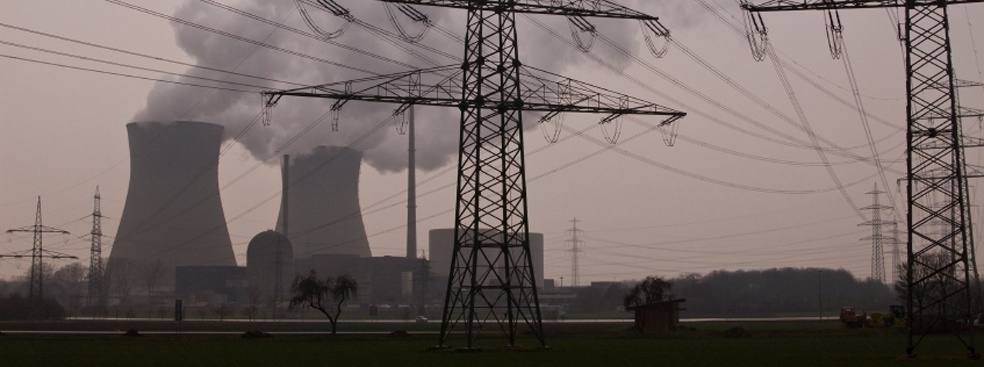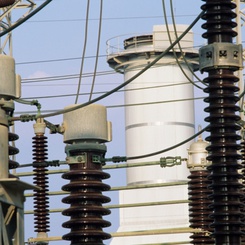Are there real risks of a Fukushima, Five Mile Island or Chernobyl type disaster within the EU today?
Is there a chance a major nuclear disaster could befall Europe? The Chernobyl disaster was not really that long ago, but of course no one can really say if that kind of disaster will happen again. No matter how prepared a nuclear facility, there is always a level of risk.
If you had asked the same question of the Japanese before the accident at Fukushima, they would have said that their power plants were extremely safe and that an accident was extremely unlikely. But in the end, the accident did occur. And no matter how “unlikely,” all the scenarios described in this stress test report are to so some degree imaginable.
The report is clearly a way for the European Union to show they have learned with the mistakes that happened in Japan. The major issue in Fukushima was the failure of the back-up systems and so this is something actively dealt with in this text. Recommendations include the creation of a “plan C” in case the initial back-up protocol fails. The problem with this is that there will always be the possibility for failure.
The question is really can you live with the failure or not? This is a clear case of risk management because there is always going to be a level of risk. What the report is really saying is that there is a level of risk within the European Union and it’s much higher than what most people would have expected. Even if plants are improved and back-up systems reinforced, the level of risk will never be zero.
Some activists say this report wasn't strong enough on aging technology, human factor and terrorism. Do you agree?
My first impression of the report was that it was less professional than most other reports I have read from the European Union. First and foremost, their definition of risk is very limited: the capacity of individual power plants to withstand the consequences of various unexpected events. The use of the word “unexpected” leaves to the side those events that are unlikely, but can be “expected” to a certain degree. Like an earthquake for example. Many industry leaders, the CEO of EDF included, had voiced their concern regarding preparedness for this kind of “expected” event.
I feel discussions regarding the threat of terrorism take a narrow view in this report. They talk extensively about the risk of planes crashing into nuclear power plants. There is no attempt in this report to have a broader view of what kind of risks a nuclear power plant could face, and what kind of actions and measures would be needed to tackle those risks. There are plenty of scenarios not being considered or discussed.
Are the costs of these overhauls feasible in most cases? Will the consumer end of picking up the tab?
The costs really depends on the country. In France for example, the costs would be relatively large – 4 euro/megawatt – but not ruinous. However, because roughly 75% of French electricity comes from nuclear power, this may have an impact on the final price for consumers. France is a special case because a huge percentage of our energy comes from nuclear and the fact that EDF has a monopoly; that increase will probably be passed on to the consumer.
In most other countries, if the cost to produce goes up by 4 euro for nuclear energy, it won’t affect the final production price for consumers but it would just make investing in nuclear electricity plants less attractive. In the short term we shouldn’t see electricity price change mostly because if you have a competitive market, the most expensive technology, which in most countries is not nuclear, would set the price. Usually this is coal or gas.
Is this not an opportunity to explore energy alternatives?
With the kind of renovations needed across Europe, investment in nuclear energy will become less attractive in the short term because it will be more expensive to produce and therefore less profitable. However, the bottom line is that the future of nuclear energy still looks strong in the long term. In China and the US for example, the number of nuclear power plants is still growing. And while some European countries – namely Germany – have decided to halt investment in nuclear energy, there is no sign this will become a broad trend across Europe.
Germany has said that by 2022 they want to close all its nuclear power plants, which is a bold statement. But a lot can change in 10 years and Germany has delayed on promises to leave nuclear energy in the past.
My feeling is that countries tend to talk about phasing out nuclear energy in the short term, but in the long term targets usually end up getting postponed. François Hollande’s empty promise to phase out nuclear is a perfect example of this. This is simply not credible.
The bottom line is that there are limited feasible energy alternatives that would allow Europe to maintain a certain degree of energy independence. Where sustainable energy sources like wind farms had benefited from subsidies and price guarantees in the not-so-distant past, governments – Spain and Portugal for example – are now withdrawing this support. Plus, wind farms aren’t a popular alternative in France because people feel they make the countryside look ugly. In reality, the crisis is giving more incentives to invest in nuclear because it’s the least expensive way to maintain energy independence.
That said, although Europe is poor in energy resources generally speaking, shale gas is something that could possibly develop in the coming years. Used in lieu of natural gas, shale gas is being extracted in the US, in Australia and in South Africa. In France and in Europe there is some potential to extract shale gas so this could be a viable option as an alternative energy source. President Hollande has chosen to keep his distance because of health and environment concerns which confirms the fact that there are no viable alternative for France today.
My belief is that nuclear is here in Europe for the long haul. Safety will need to be increased but I think a lot of safety improvement will come above all from the installation of newer plants that can replace the old.





